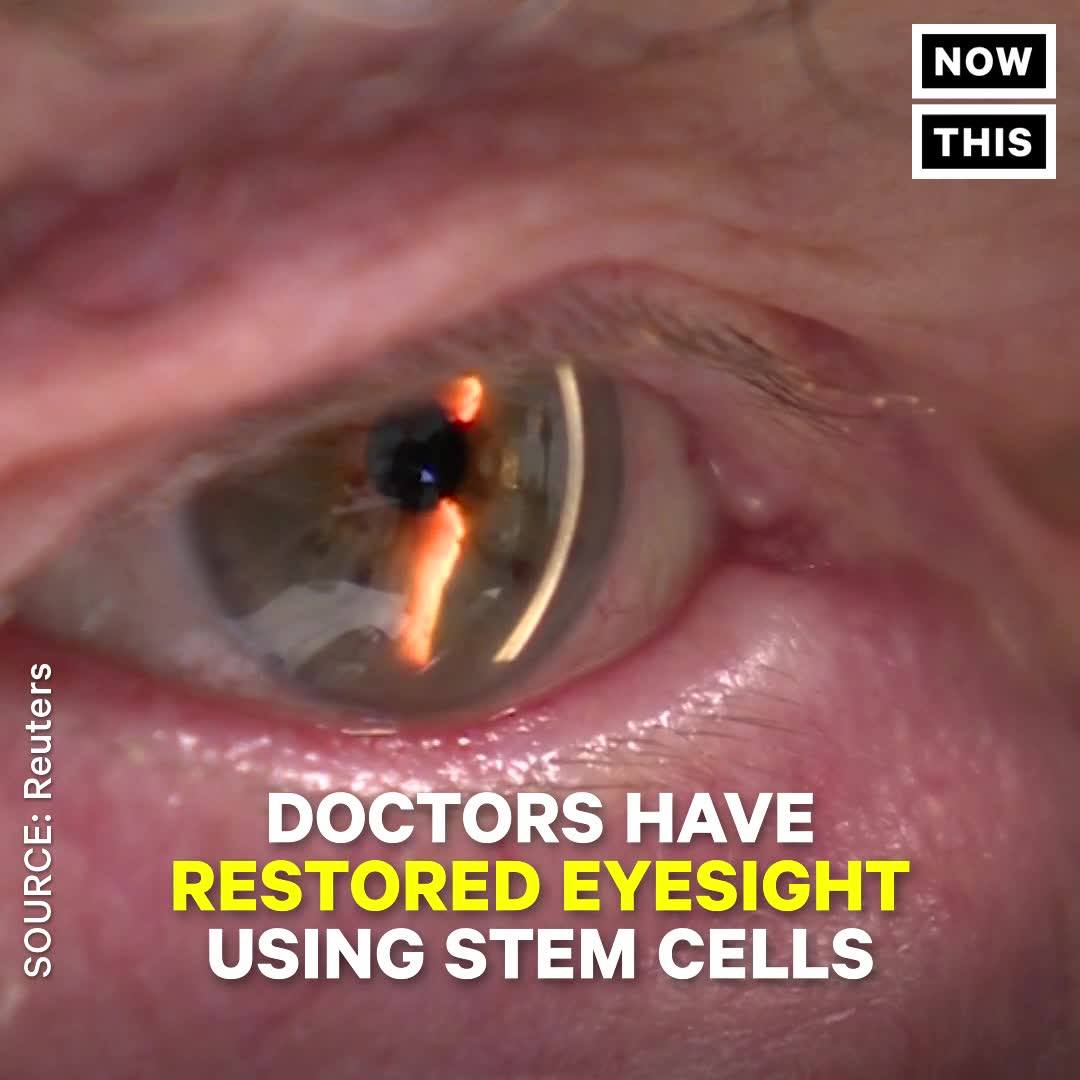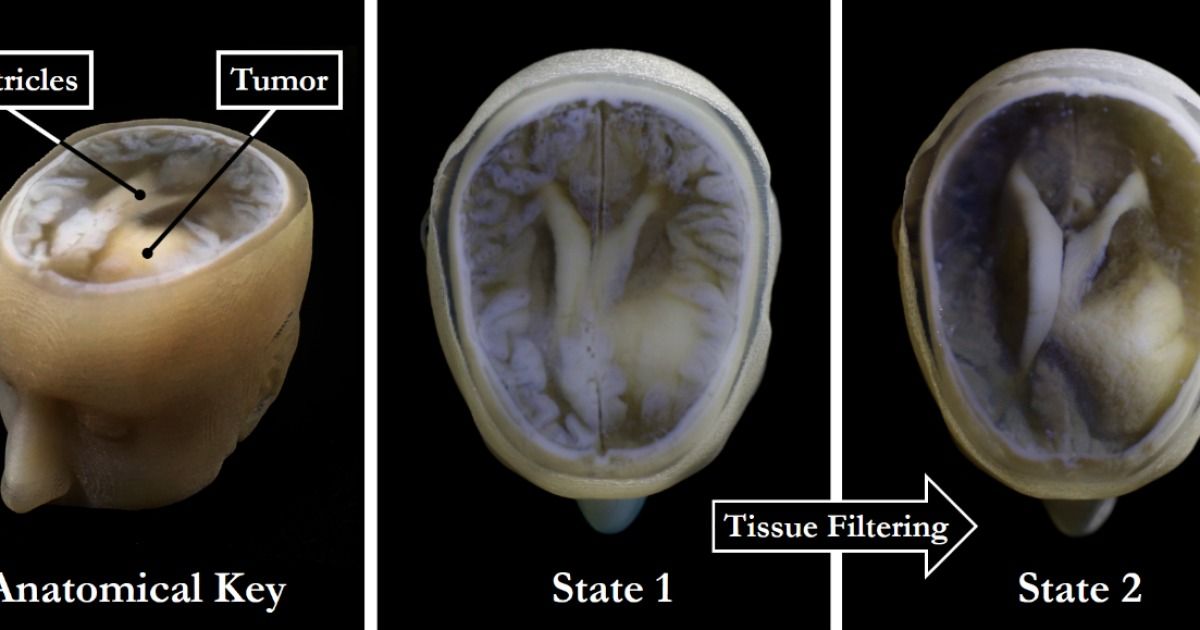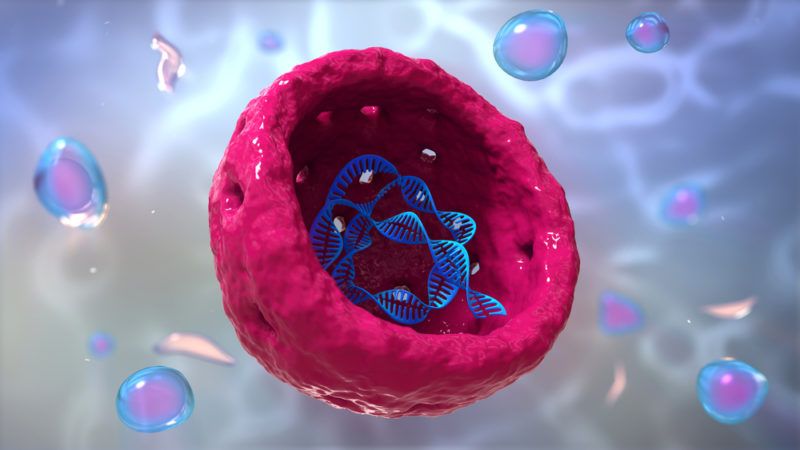Archive for the ‘biotech/medical’ category: Page 2272
May 31, 2018
You’ll soon be able to get a 3D printed model of your brain
Posted by Marcos Than Esponda in categories: 3D printing, biotech/medical, computing, habitats, neuroscience
https://www.engadget.com/…/3D-printed-brain-medical-imagin…/
There are almost limitless possibilities when it comes to 3D printing. Design your own color-changing jewelry? Fine. Fabricate your own drugs? No problem. Print an entire house in under 24 hours? Sure! Now, researchers have come up with a fast and easy way to print palm-sized models of individual human brains, presumably in a bid to advance scientific endeavours, but also because, well, that’s pretty neat.
In theory, creating a 3D printout of a human brain has been done before, using data from MRI and CT scans. But as MIT graduate Steven Keating found when he wanted to examine his own brain following his surgery to remove a baseball-sized tumour, it’s a slow, cumbersome process that doesn’t reveal any important areas of interest.
Continue reading “You’ll soon be able to get a 3D printed model of your brain” »
May 31, 2018
When I am Eighty-Five
Posted by Alexander Rodionov in categories: biotech/medical, business, life extension
I will be 85 somewhere in the mid 2050s. It seems like a mirage, an impossible thing, but the future eventually arrives regardless of whatever you or I might think about it. We all have a vision of what it is to be 85 today, informed by our interactions with elder family members, if nothing else. People at that age are greatly impacted by aging. They falter, their minds are often slowed. They are physically weak, in need of aid. Perhaps that is why we find it hard to put ourselves into that position; it isn’t a pleasant topic to think about. Four decades out into the future may as well be a science fiction novel, a far away land, a tale told to children, for all the influence it has on our present considerations. There is no weight to it.
When I am 85, there will have been next to no senescent cells in my body for going on thirty years. I bear only a small fraction of the inflammatory burden of older people of past generations. I paid for the products of companies descended from Oisin Biotechnologies and Unity Biotechnology, every few years wiping away the accumulation of senescent cells, each new approach more effective than the last. Eventually, I took one of the permanent gene therapy options, made possible by biochemical discrimination between short-term beneficial senescence and long-term harmful senescence, and then there was little need for ongoing treatments. Artificial DNA machinery floats in every cell, a backup for the normal mechanisms of apoptosis, triggered by lingering senescence.
When I am 85, the senolytic DNA machinery will be far from the only addition to my cells. I underwent a half dozen gene therapies over the years. I picked the most useful of the many more that were available, starting once the price fell into the affordable-but-painful range, after the initial frenzy of high-cost treatments subsided into business as usual. My cholesterol transport system is enhanced to attack atherosclerotic lesions, my muscle maintenance and neurogenesis operate at levels far above what was once a normal range for my age, and my mitochondria are both enhanced in operation and well-protected against damage by additional copies of mitochondrial genes backed up elsewhere in the cell. Some of these additions were rendered moot by later advances in medicine, but they get the job done.
May 31, 2018
Chronic Supplementation With a Mitochondrial Antioxidant (MitoQ) Improves Vascular Function in Healthy Older Adults
Posted by Steve Hill in categories: biotech/medical, life extension
Earlier this month, there was a human clinical trial of the supplement MitoQ, which showed some interesting results. We thought that we would take a look at the data, and discuss the findings.
Excess reactive oxygen species production by mitochondria is a key mechanism of age-related vascular dysfunction. Our laboratory has shown that supplementation with the mitochondrial-targeted antioxidant MitoQ improves vascular endothelial function by reducing mitochondrial reactive oxygen species and ameliorates arterial stiffening in old mice, but the effects in humans are unknown. Here, we sought to translate our preclinical findings to humans and determine the safety and efficacy of MitoQ. Twenty healthy older adults (60–79 years) with impaired endothelial function (brachial artery flow–mediated dilation 6%) underwent 6 weeks of oral supplementation with MitoQ (20 mg/d) or placebo in a randomized, placebo-controlled, double-blind, crossover design study.
May 31, 2018
‘Memory transplant’ achieved in snails
Posted by Narenda Har in category: biotech/medical
May 31, 2018
Mike West, CEO AgeX, at
Posted by Michael Greve in categories: biotech/medical, life extension
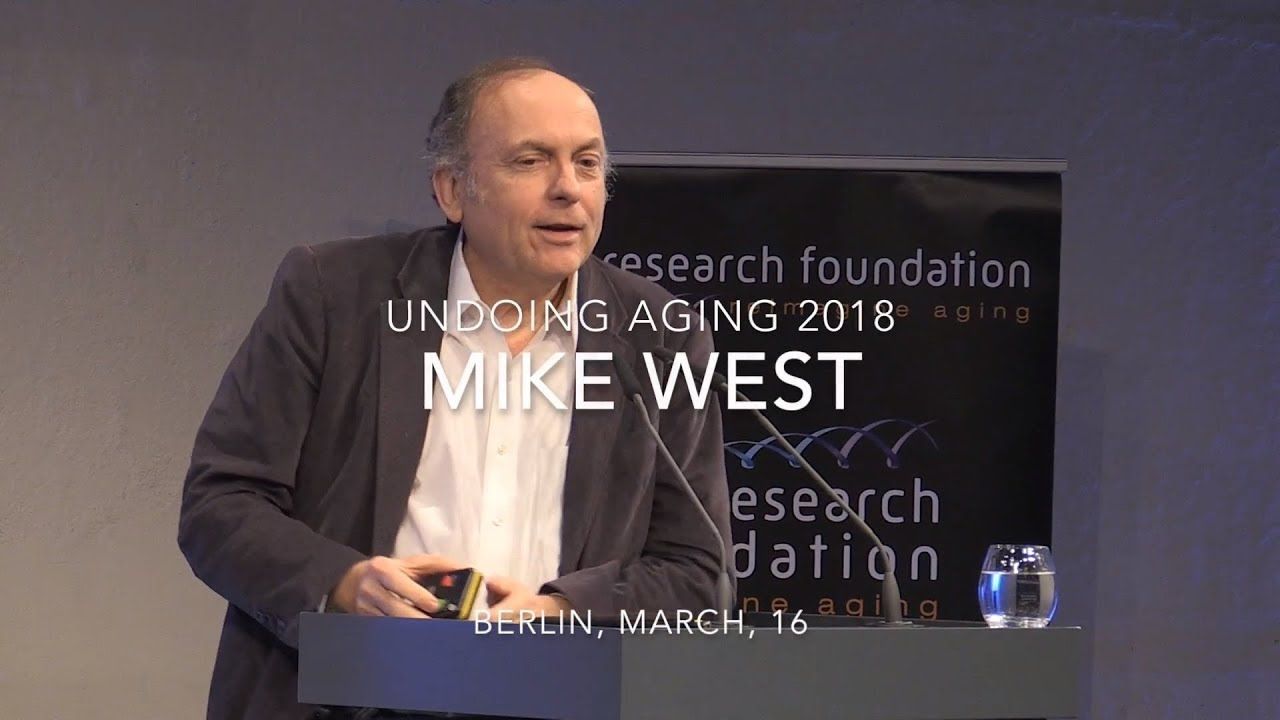
New video from Undoing Aging 2018: Mike West, Founder, and CEO of AgeX, presenting their work on induced tissue regeneration: Leveraging the unique regenerative potential of pluripotent stem-cell-derived therapeutics.
Accelerating rejuvenation therapies to repair the damage of aging. Berlin, March, 15 — 17.
May 31, 2018
John Lewis, CSO of Oisin Biotechnologies, presenting at
Posted by Michael Greve in categories: biotech/medical, life extension
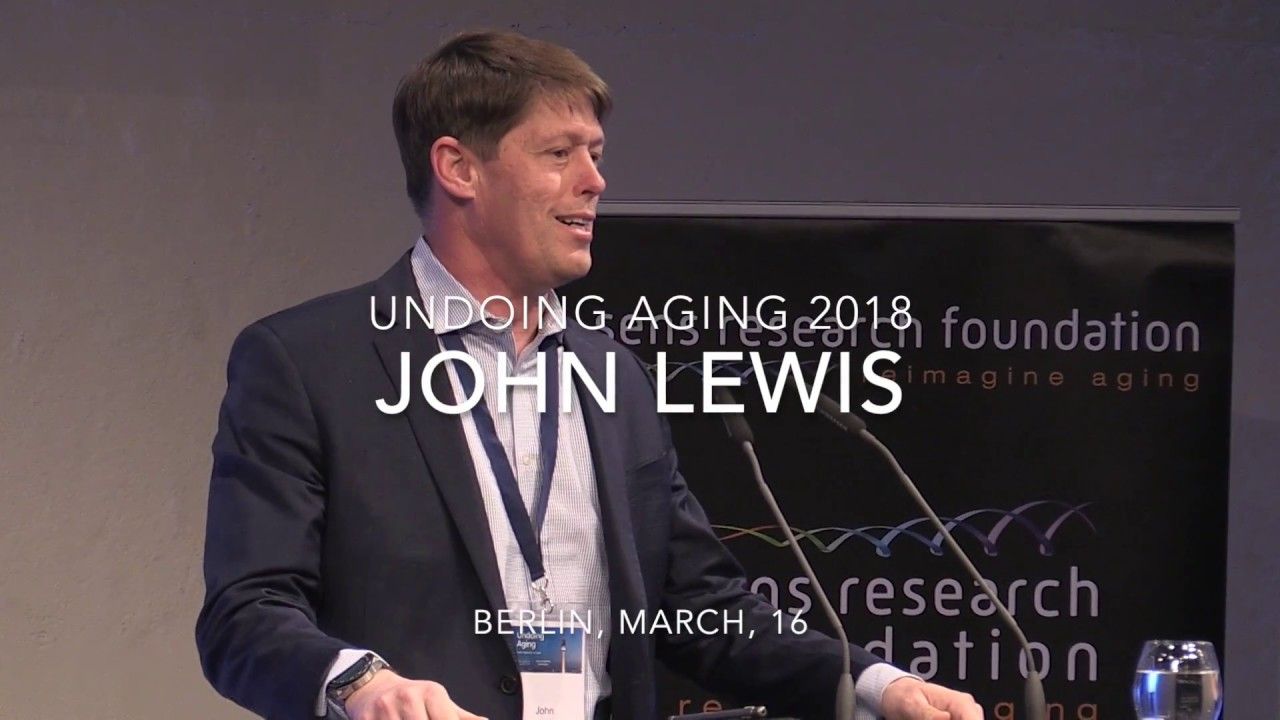
New video from Undoing Aging 2018: John Lewis, CTO of Oisín Biotechnologies presenting their work developing very selective therapies to kill senescence cells.
Accelerating rejuvenation therapies to repair the damage of aging. Berlin, March, 15 — 17.
Continue reading “John Lewis, CSO of Oisin Biotechnologies, presenting at” »
May 31, 2018
Popular reactions to life extension
Posted by Nicola Bagalà in categories: biotech/medical, life extension
Research on people’s reaction to life extension is rather rare; this article discusses two such papers.
Two papers by Partridge et al [1, 2], both published in 2009, provide the somewhat rare opportunity to examine some concerns about life extension as formulated by actual people, rather than their general, more abstract forms. As highlighted in the studies, research on the public’s perception of life extension science has been very much neglected; this, in turn, has made it harder to identify the misconceptions and incorrect information fueling some common concerns about life extension and made it even harder to address those very concerns. Needless to say, the more that the public views life extension negatively, the less supportive that it will probably be, which is bad news for researchers.
The papers present the results of several interviews, conducted either in person or on the phone, aimed at understanding what ethical concerns the interviewees had about life extension and what implications they thought extended human lifespans would have for themselves and for society. The research was conducted on a sample of the Australian population only, but the issues they raised were entirely representative of a typical discussion about life extension. In both studies, the interviewees were presented with the general premise of possibly slowing down aging and the onset of age-related diseases in order to greatly extend human healthy lifespan.
May 31, 2018
A Health and Longevity Strategy
Posted by Steve Hill in categories: biotech/medical, life extension
Who wants to lose weight, feel great, and live a long and healthy life, and what does it take to achieve these goals? Diet and exercise are equally important in long-term health, but let’s look at what recent science is telling us about the healthiest diets.
This article will rely heavily on University of Southern California professor Valter Longo’s work because I consider it to be the gold standard for nutrition research, and his recommendations in his book The Longevity Diet are well-supported with both data and good logic. Longo is the director of the Longevity Institute at USC and the IFOM Program on Longevity and Cancer in Milan.
He comes from an area of Italy known for very long lives, and part of his research focus has been looking at similar areas around the world and why those people live so much longer than normal.
May 30, 2018
Age-Related Changes to the Nuclear Membrane Alter Gene Expression
Posted by Manuel Canovas Lechuga in categories: biotech/medical, life extension, neuroscience
Researchers at the University of Virginia School of Medicine have discovered that as we age, our cells’ nuclear membranes become misshapen, which stops our genes from working properly.
Nuclear membranes become distorted with age
The DNA in all our cells is the same; however, the cells in our body show a great range of variation and function. How can this be when they have the same DNA? It all comes down to gene expression and which genes are turned off and which are turned on. For example, certain genes must be turned on in a cell for it to be a liver cell; those same genes need to be turned off for it to be a brain cell. If the correct genes are not turned off, problems occur.
Continue reading “Age-Related Changes to the Nuclear Membrane Alter Gene Expression” »
